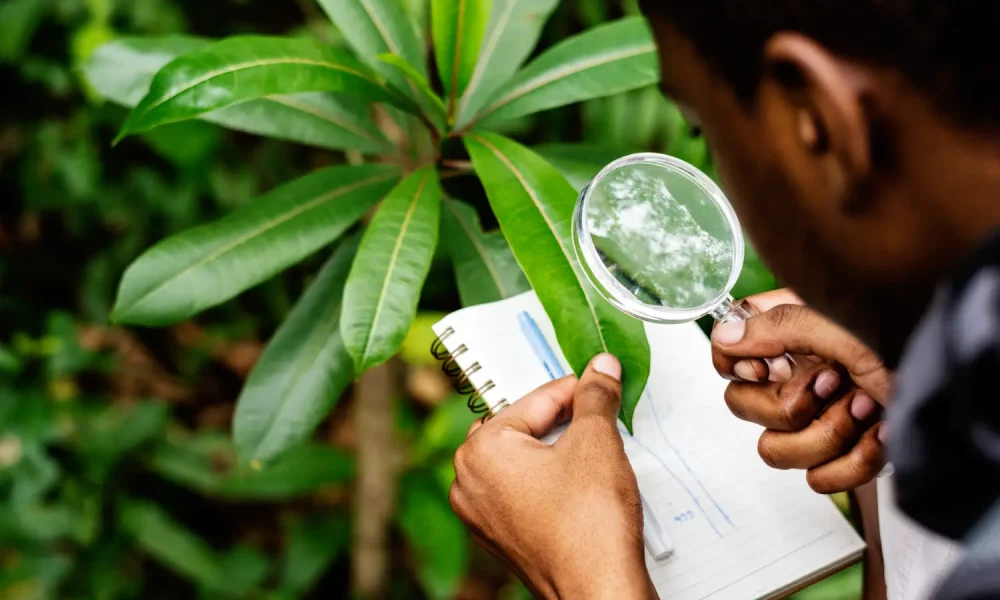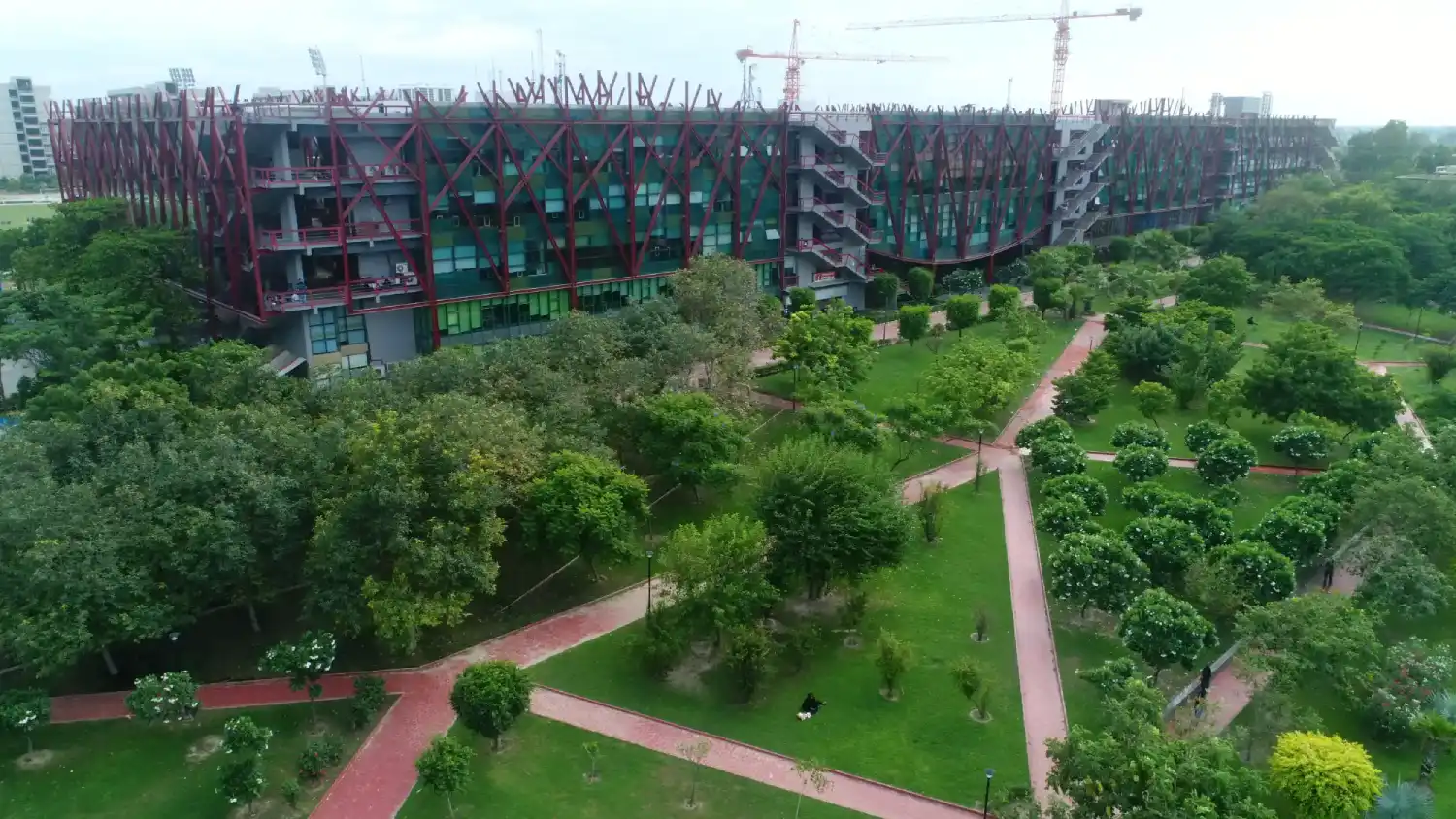The expansion and advancement of human civilization for thousands of years have happened at the cost of the environment and nature; the realisation and resolve are only new and trivial, to say the least. This is why the development of environmental studies and plans to promote sustainable development has been widely accepted at a time when the cost of the environmental degradation caused by humans is starting to show its dangerous consequences.
The discipline of Environmental Studies was first established in the 1950s at Syracuse University, a New York State College of Forestry. Today, the importance of environmental science is undeniable, and its impact are evident with educational boards across the globe, adopting the module as a compulsory course even at a fundamental level.
What is Environment & Sustainable Development all About?
Environmental science education is a compulsory course introduced at elementary level to raise awareness about environmental issues. Theoretically, Environmental studies are focused on understanding the interaction between humans and nature. In doing so, what was uncovered was far graver than anticipated, and hence, the study of Environment and Sustainable Development became instrumental.
The awareness of manmade environmental issues has an ancient history dating back to the collapse of Israel and Jordan in 6000 BCE; one of the reasons for the collapse is believed to be severe deforestation. The idea for the Environmental Science program began to take shape in the 1900s. After two world wars and the rising number of environmental problems at our disposal, by the start of the 21st century, many branches of environmental studies had been born.
Environment and Sustainable Development is an interdisciplinary course that explores a wide range of subjects to address pressing environmental challenges. It leverages the principles of sustainable development to secure progress for future generations. At the heart of this programme lies a commitment to environmental sustainability and the well-being of all humankind.
The Value of Environment & Sustainable Development in 2025
Like the mandatory inclusion of environmental science at the basic educational level, education for sustainable development is an UNESCO initiative that aims to empower people about the dangers of unsustainable living and provide alternatives without depleting the natural resources and saving the planet.
Environmental degradation, deforestation, climate change, and global warming are a few terms that have gained much significance in the 21st century as the impact of centuries of human destruction comes back to haunt us. The importance and value of the environment and sustainable development programmes go beyond the periphery of academic excellence and societal change. It becomes a survival genius and the means to sustaining a future for the planet and its people.
Factors to Consider for Sustainable Development
The definition of sustainable development is about fulfilling the current needs without disrupting the resources for future generations. The ideals of sustainability are established on three pillars, which include environmental, economic, and social sustainability factors.
The topic of environmental sustainability has only recently been discussed on public and global forums. It is the practice of limiting the consumption of natural resources at a sustainable rate and managing them in accordance with the principles of the Circular Economy principles.
When discussing the environment and sustainable development, it is important to highlight the economic aspect as well. Economic sustainability refers to the fair practice of responsible and reasonable use of resources to sustain a country and grow.
The most challenging aspect of sustainable development is social sustainability. A social system should strive for a sustainable development for all and be persistent about the well-being of the state. Social sustainability is all about the collective good of society.
Sustainable development is a pressing need of the times, and according to Swiss Re Institute Research, if the global temperature levels rise over 2°C or the 2050 Net-Zero emissions and Paris Agreement targets are not met, the estimated global economic toll is expected to be above 250 trillion dollars.
| Sustainability Pillar | Description | Key Focus Areas |
| Environmental Sustainability | Responsible use of natural resources without depleting them | Resource conservation, biodiversity, pollution |
| Economic Sustainability | Ensuring long-term economic growth without harming the environment or society | Green jobs, fair trade, renewable investments |
| Social Sustainability | Promoting social well-being, equity, and community resilience | Education, healthcare, social equity |
Explore Jindal School of Environment and Sustainability
Environment and Sustainability Courses

Environmental Science Courses after 12th
Many fresh graduates are now choosing to expand on the compulsory environmental study subjects. They can pursue an undergraduate programme specifically dealing with environmental science. A BSc in environmental science is a four years honours degree programme.
Students can take admission in the Environment & Sustainable Development courses from any stream in their 12th board exam. They may also need to take an entrance exam, such as the SAT, ACT, or other university-specific aptitude tests. These assessment tests are included to evaluate the potential of candidates for completing the full-proof course.
Subjects in an Undergraduate Environmental Science Programme
Here are some of the topics typically covered in the B.Sc. environmental science programme.
- Environmental Policies & Practices
- Ecology, Ecosystems, & Wildlife
- Climate Change & Policy
- Planetary Boundaries & Sustainable Development Goals
- Sociological Perspective on Environment
- Environmental Ethics
- Water: Science & Policy
- Waste Management: Sustainable Practices
- Environmental Data Analysis
- Environmental Pollution & Community Health
- Energy & Environment
- GIS & Special Data Analysis
- Environment Quality Monitoring & Assessment
- Corporate Environmental Responsibility
- Environmental Impact Assessment
- Behavioural Ecology & Sociology
- Environmental Management Systems
- Natural Hazards & Disaster Resilience
- Ecosystem Restoration & Conservation
- Hydrology & Watershed Management
Other subjects may include, Food & Security, Ecology & Evolution, Environmental Biochemistry & Biotechnology, Environmental Biology, Environmental Risk Assessment & Management, etc. Along with theoretical courses, classroom lectures, and debates, there are research papers, dissertation projects, international exchange programmes and internships that allow students to learn the professional way of handling real-world problems.
| Subject Area | Topics Covered |
| Environmental Policy & Law | Environmental Acts, Policy Frameworks, Legal Enforcement, International Agreements |
| Ecology & Wildlife | Biodiversity, Ecosystem Analysis, Wildlife Conservation |
| Climate Change & Sustainability | Global Warming, SDGs, Planetary Boundaries, Climate Policies |
| Environmental Data & Analysis | GIS, Remote Sensing, Environmental Modelling, Data Interpretation |
| Waste & Water Management | Urban Waste Systems, Water Policy, Recycling Techniques, Circular Economy |
| Human & Social Dimensions | Environmental Ethics, Sociology of Environment, Community Health |
| Disaster Management | Risk Assessment, Disaster Preparedness, Resilience Strategies |
| Corporate & Industrial Roles | Environmental Management Systems (EMS), CSR, Green Audits, Carbon Accounting |
Future Trends to Consider for a Career in the Field of Environment & Sustainable Development
The BSc in Environmental Science programme has high value and is highly relevant in 2025. For example, the infamous European Green Deal is a noble and ambitious project that is expected to create over 1 million green jobs on the continent.
The study of Environment and Sustainable Development offers diverse knowledge and skills for approaching different sectors related to your core field of expertise. You can expect to serve in job roles including carbon accountant, sustainability manager, sustainability finance specialist, climate change consultant, sustainability data scientist, renewable energy engineer, and many more.
| Career Role | Key Responsibilities | Relevant Skills Required | Industry/Application Areas |
| Carbon Accountant | Calculate and report carbon footprints for organisations | Carbon tracking, data analysis, compliance knowledge | Corporate sustainability, auditing firms |
| Sustainability Manager | Develop and oversee sustainability strategies in businesses or institutions | Project management, communication, ESG knowledge | Corporates, universities, NGOs |
| Climate Change Consultant | Advise on climate risks, adaptation strategies, and mitigation plans | Climate policy, risk modelling, stakeholder engagement | Government, policy think tanks, private firms |
| Renewable Energy Engineer | Design and implement renewable energy systems like solar, wind, or hydro | Engineering, energy systems, innovation skills | Energy companies, infrastructure, R&D |
| Environmental Data Scientist | Analyse complex environmental data sets to guide decisions | Data analytics, machine learning, environmental modelling | Research institutions, consultancies, tech firms |
| Sustainability Finance Specialist | Evaluate financial investments through a sustainability lens (ESG, green bonds, etc.) | Financial modelling, ESG criteria, risk management | Banking, investment firms, CSR sectors |
| Environmental Educator/Outreach Officer | Educate communities, schools, or organisations about sustainable practices | Public speaking, curriculum design, communication | NGOs, schools, government campaigns |





